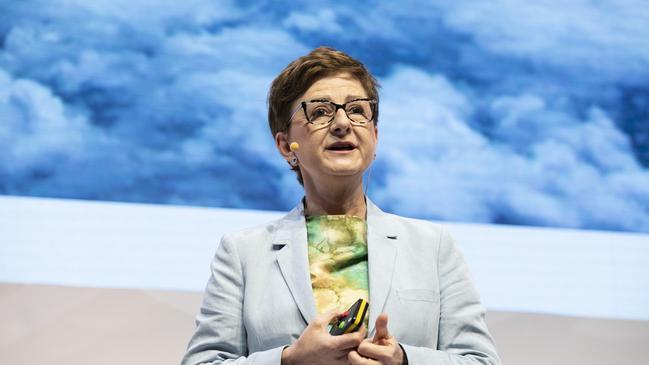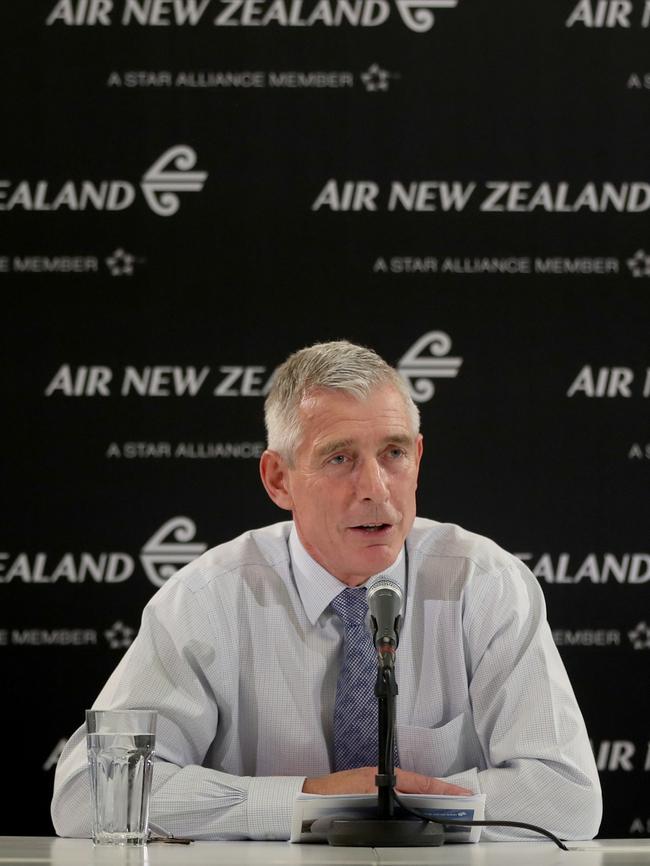High airfares are here to stay for a long time yet as airlines tackle the challenge of going green
Travellers face the prospect of higher fares for years as airlines pass on the expense of going green, the industry’s foremost economist has warned.

Travellers face the prospect of high fares until about 2040 as airlines transform themselves into environmentally sustainable carriers and pass on increased costs in the process.
The airline industry’s foremost economist Marie Owens Thomsen delivered the sobering outlook at the International Air Transport Association’s annual summit in Istanbul.
Delivering an economic update to airline chief executives and media, Ms Owens Thomsen said it would be many years for critical sustainability measures, such as the production of biofuel, to reach a scale where it was not an excessive cost burden on carriers.
“To be a robust business, everybody needs to cover their costs,” she said.
“Today the price of sustainable aviation fuel (SAF) is two to four times higher than the price of jet fuel, so costs are increasing and airlines will have to find a way to cover their costs, or they will start making losses again, which is not in the interests of anybody.”
With current production of SAF amounting to less than 0.1 per cent of what was needed by airlines, Ms Owens Thomsen said it was “all about the future and getting everyone to align with airlines’ commitment to achieve net-zero carbon emissions by 2050”.
“While we’re doing all of that, more costs are likely to increase until such a point when all of these solutions become commercially viable and reach a scale when we can start thinking that these costs are going to decline again,” she said.
“I can’t think of a point necessarily when that’s going to be, but I’m going to say around 2040.”

Her expectations around moves to more sustainable air travel were shared by Air New Zealand CEO Greg Foran who said managing those costs was the next biggest challenge for airlines.
He said carriers like Air New Zealand were currently enjoying the recovery, with strong demand and travellers not blinking at high fares, but that could only last for so long.
“We’re all making good profits because demand is exceeding supply,” Mr Foran said on the sidelines of the IATA summit.
“(But) we’re entering a period of reasonably significant inflation, and we're seeing rising costs and slightly less productivity, then you have on the horizon carbon emissions coming at you which will add costs.”
It seemed inevitable such costs would be passed on to travellers in the same way fluctuations in the price of jet fuel were, with the alternative a “profitless prosperity” for airlines, said Mr Foran.
“You can see more costs coming, but also capacity coming back in, so there will be pressure for fares to come down,” he said.
“Navigating this becomes a very interesting challenge for us because you stand the risk of profitless prosperity.”
Qantas was already developing a “user pays” approach to SAF bringing major companies on board to help cover the increased expense of greener air travel.
Travellers would also be given the option of “ticking a box” to contribute to the use of zero emissions biofuel in the same was as passengers could choose to carbon offset flights.
But Qantas sustainability CEO Andrew Parker revealed that since travel restarted in the wake of the Covid-19 pandemic, fewer people were actually buying offsets.
“It’s circa 10 per cent historically, it’s a little lower post-Covid, high single digits, but we’re confident that will get back to the ten per cent level,” Mr Parker.
“Many airlines are trying to solve this conundrum of the green premium, so we’re investing, we need government support, but we want consumers largely to be participating with us as well.”
The writer is in Instanbul as a guest of IATA.






To join the conversation, please log in. Don't have an account? Register
Join the conversation, you are commenting as Logout